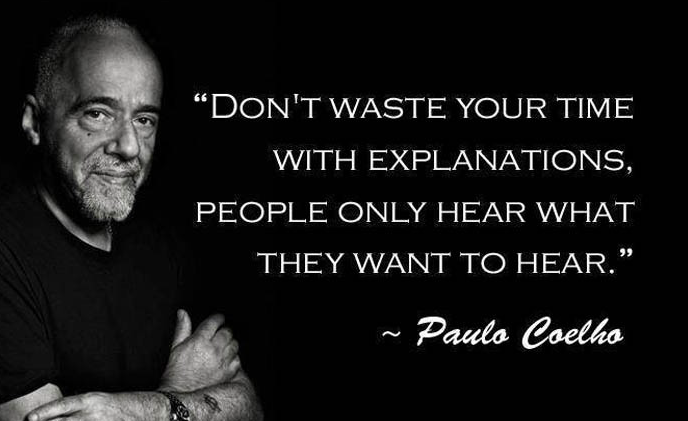Yako:
Recently I had to make a weekend trip to the Netherlands and on my way back at Schiphol airport, I browsed the duty free shops and came across a book with an interesting title: "The Subtle Art of Not Giving a F***," by Mark Manson (the word F*** is censored for the purpose of this column -- not in the actual title). At that very moment I was going through some stuff and thought: "Wow, if only I would not give so much of a f***, I would feel much better." So I purchased the book. I did not start reading it immediately because the title alone did something positive to me, and I was afraid that the message in the book would counter that. Before I go more into it, Krystal, what comes up for you when reading this title?
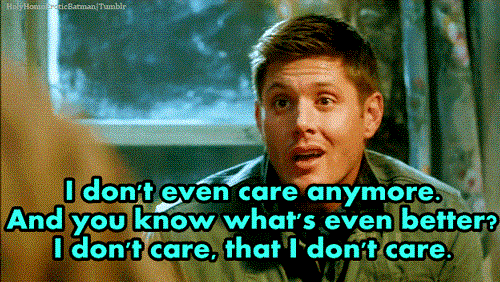
Krystal:
What a title! Sounds like my kind of book. When I think on the statement, my initial interest is in the use of the word "subtle." The second thought that comes to mind is the number of facets that this emotion is made of. I am familiar with several: One is audacious expression, when you don't care in spite of whatever forces may attempt to influence you; the other is denial, when you say you don't care, but by saying so, you are caring and also lying about not caring to protect the vulnerability of your pain; the third is emotional freedom, when you cared at one point but took a path that liberated you from the bondage of caring against your will; and the fourth is rudeness, when you would care if you were polite, but your personal interests leave no room for that to happen.
I feel as though we have all embodied at least one of these styles of not giving a f*** at some point in our lives. The one I'm most interested in is emotional freedom, which I see as two-fold in effectiveness: our lack of care can be both self-empowering and inspirational to others. Do you think the use of the word "subtle" is applied socially or internally?
Yako:
Wow, I had to read that twice before I could fully grasp your profound analysis of a mere book title! I've said it before: your intellect way surpasses mine and I don't mean that in a sarcastic way. It's just how it is.
To answer your question, it's both, but more so the internal experience of not giving a f*** that will eventually have social impact. Makes sense, right?
Of the four facets you mention, the book is a bit of a combination of facet one and three with a dash of facet two and four. However, it's not synonymous with not caring. Let me no longer keep you in suspense and elaborate on this a bit more.
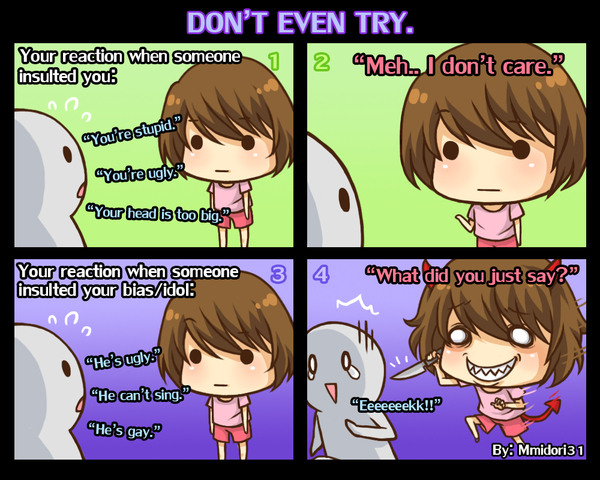
Have you ever had the experience of everything going wrong, everybody was against you and you had no way out? Or have you ever faced a life decision that you could not rationally figure out? Deep in your heart you knew what to do, but it's scary because it will reveal something about who you truly are. It's so overwhelming that your brain almost shut down and you suddenly made a decision based on pure gut and instinct, not contemplating what the consequences are. You just went for it and you knew it was the right thing and nothing would stand in the way.
That's what this book is about. Despite any setbacks and shortcomings, you accept who you are and are expressed as such. You care about what is important to strive for, but you're not afraid to get hurt along the way or even afraid of displeasing others.
We are conditioned to always have to improve, to strive for perfection, do more, get a better body, be smarter, be sexier, earn more. We're told that if we believe in our potential and tell ourselves we can do it, it will eventually happen. But it's a sham. When you look in the mirror in the morning and say to yourself: "I am beautiful, confident, and successful," it actually has a contrary effect. By doing so, you are continually reminding yourself of what you are not (or think you are not).
Also, your brain plays tricks on you. For example, you are nervous because you have to do a public presentation. You'd like to not be nervous and now you get even more nervous, because you are nervous about that!
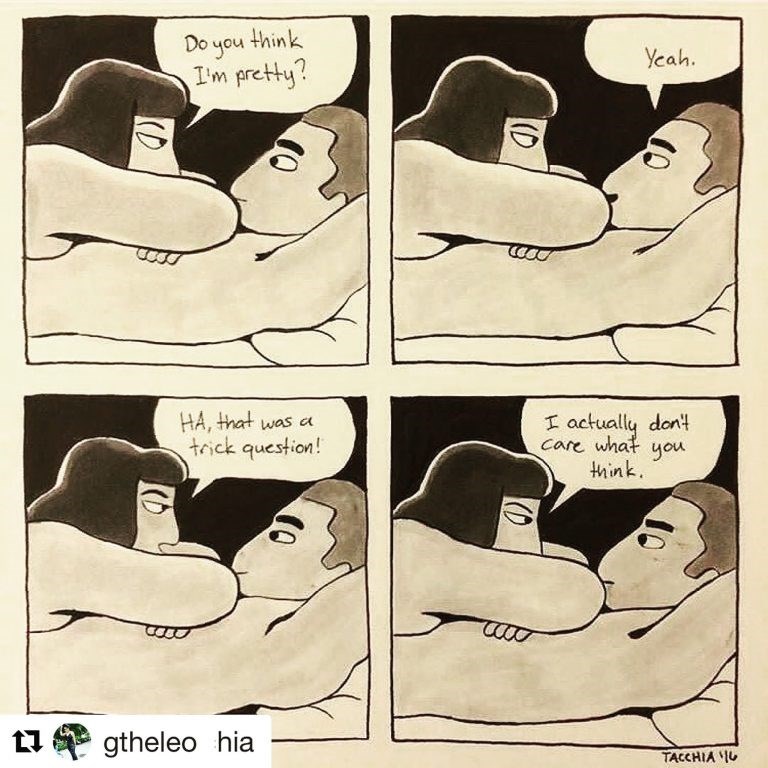
It's a vicious cycle that can only be broken by embracing and accepting your deficit. And now I'm translating the Dutch translation of what was originally published in an English book, so I'm not sure if I'm quoting correctly: "The desire for positive experiences is in essence a negative experience, while the acceptance of a negative experience is in fact a positive."
Krystal:
Thank you so much for the sentiments and for expounding on this! I'm with it. To answer your question - yes, I have had experiences when everything seemed to be going wrong for a prolonged period of time and it was and is overwhelming. Lately, I have been tapping into my journey of finding a healthy balance in my mind and in myself. It's been a struggle, but it has also been very revealing. When I decided to go with what felt right before the judgement factor, it resulted in me being more clear about the challenge itself - especially about myself. That being said, I have to agree with you, there is so much more to life when you accept yourself instead of striving to be something that you don't identify as already being.
Sometimes having goals can be depressing and counterproductive, because as you said, they are actually what looms over you and make you feel more pressured. The best way to take on goals is to disregard what's stopping you and congratulate yourself for who you are. It's like conditioning before a race or game, you're in the best shape, and have more of a chance at breaking through and coming out on top.
As of recent, I finally realized what "self-love" means to me - allowing myself to be what and who I am, being at peace with that person and loving that person despite the shortcomings. It's caused a bit of the weight to be lifted off of my mindset. Unapologetic expression, which I see as a means of psychological liberation, has been my choice of medicine to dispel the negative dialogue that I've fed myself and have been fed throughout life.
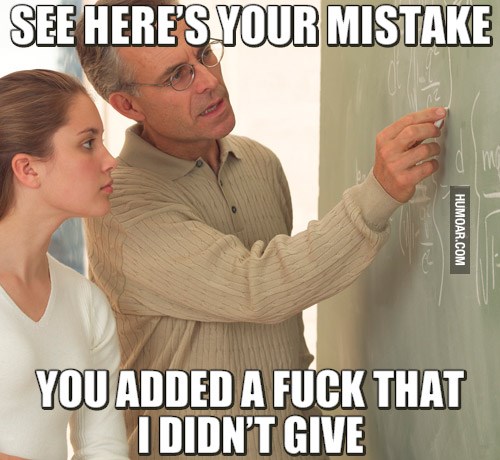
Let's face it, everyone has to deal with the pressure of measuring up at some point. How much we are in touch with ourselves is the determining factor of whether we take that pressure on or see it for the pitfall that it is. Self-love allows us to escape the fallacy of having to do better for an audience that is comprised of individuals who are just as broken as they make you out to be. As cheeky as it sounds, the phrase "you are your own worst enemy" is true. It is our minds that allow and build the beliefs and lies that hinder us from being the best version of ourselves. It is best to just "be" as often as we can.
To circle back, not giving a f*** about the bull**** is pretty much the best thing you can do for yourself and those around you. Doing so allows you to discover the people, places and things that truly matter to you instead of striving for superficial feats.
Yako:
Yes, that about sums it up. With this, we'll wrap it up for this month's column - we already missed the deadline by almost 2 weeks. Another measure that society expects us to live up to, but I hope the esteemed readers understand from our deliberation that this does not mean we shouldn't give a f*** about meeting deadlines. We should restore our integrity, accept that we are late and move on. On to the next column.
Krystal & Yako

